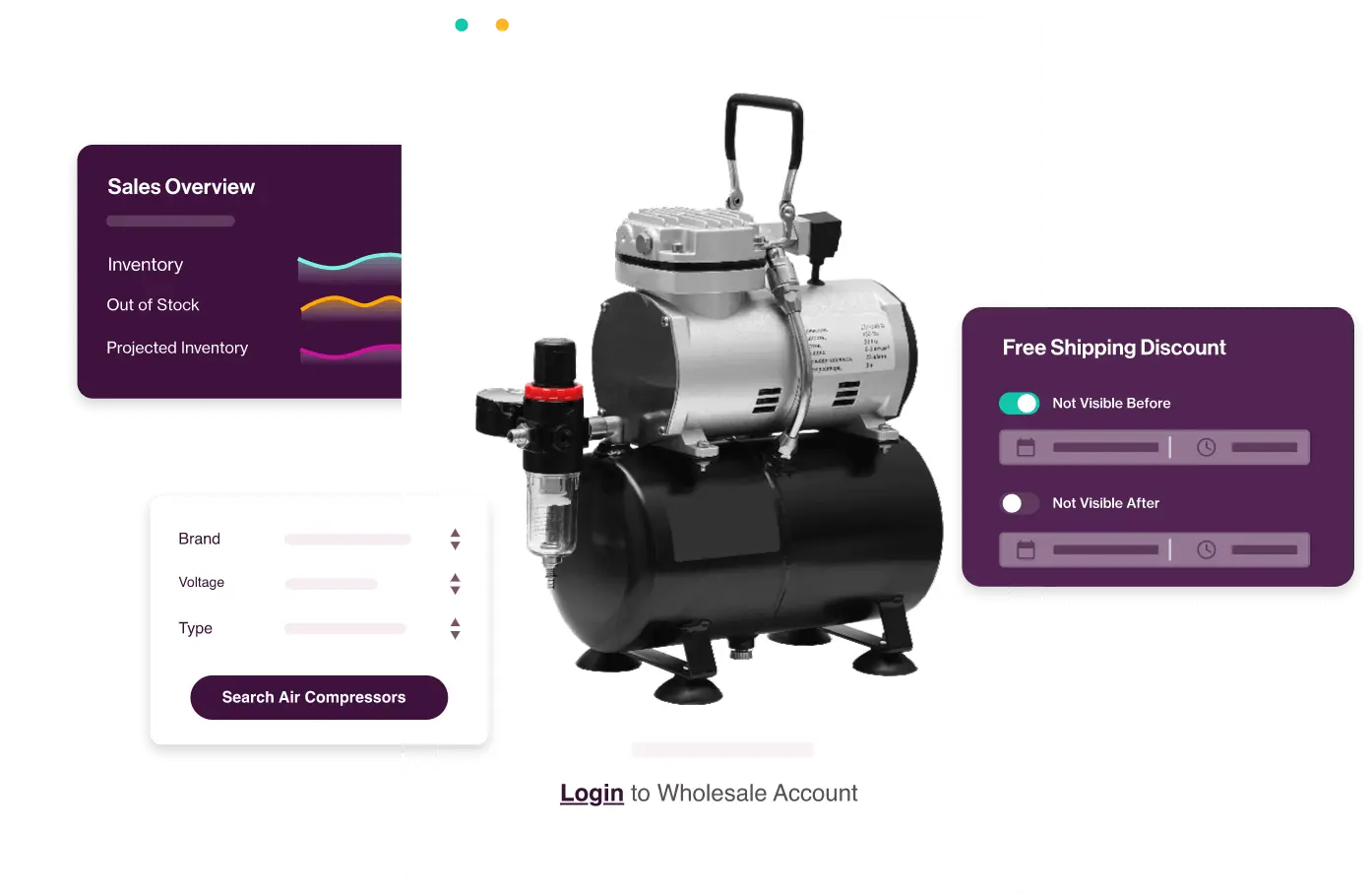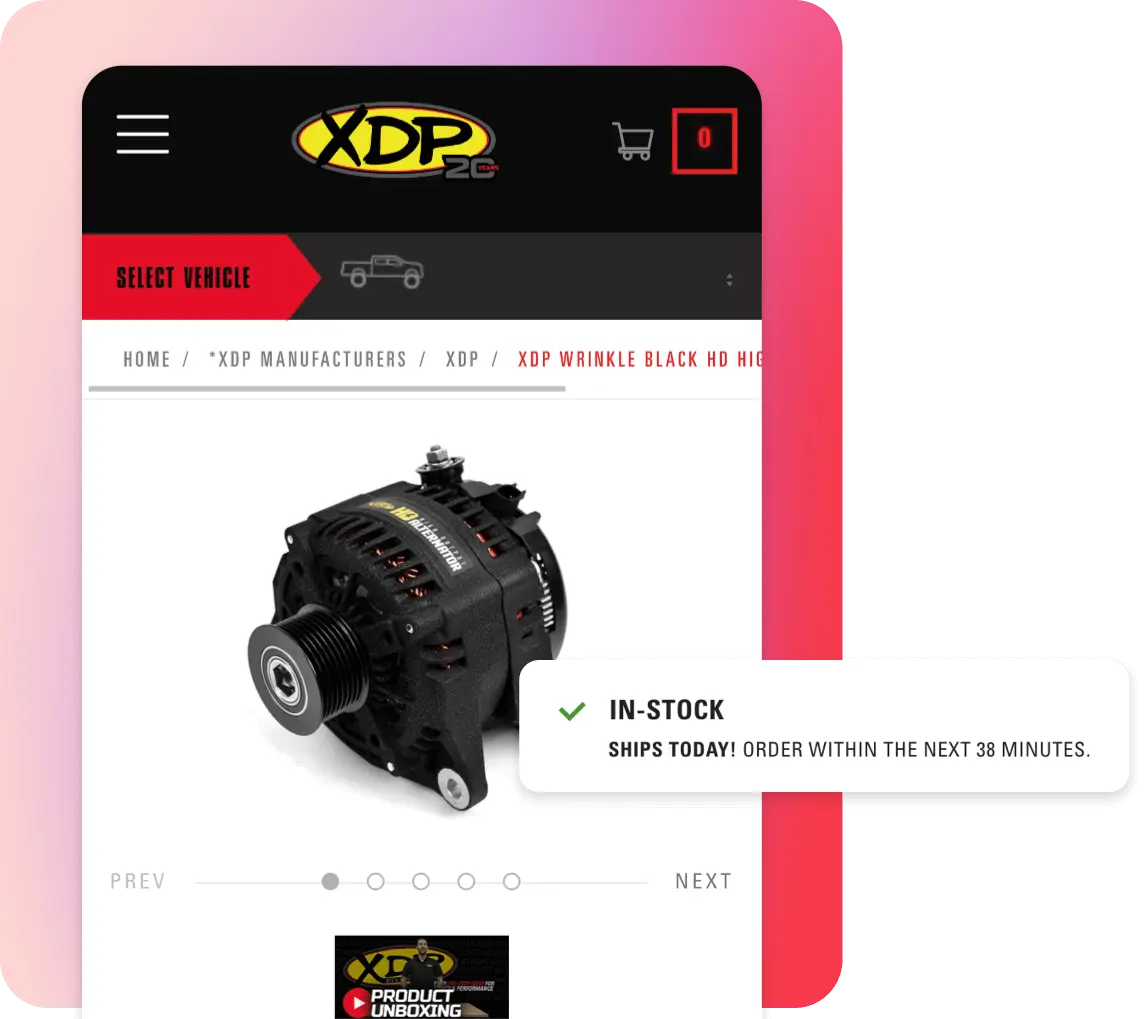Making The Move: Changing Ecommerce Platforms Download Free Guide
Making The Move: Changing Ecommerce Platforms Download Free Guide
A SaaS ecommerce platform built to help you drive sales, cut costs, and increase revenue.
Free Product Tour
Miva includes everything you need to manage your B2B & DTC online sales–no second platform required. Offer each customer an optimized purchasing experience that combines the best of B2B & DTC.

With Miva, Xtreme Diesel Performance can sell to both B2B and B2C customers on one comprehensive platform.
Read Their StoryMiva's editing tools allow you to make updates quickly, with no-code options for adjusting site design, features, and content.
Miva's robust API and network of best-of-breed solutions empowers your team with the tools they need to succeed.
Seamlessly connect your shipping and warehouse systems for streamlined order fulfillment and tracking.
Integrate directly with ERP, OMS, and WMS systems to ensure synchronized data across all business operations.
Automate complex tax calculations to ensure compliance and accuracy across all transactions.
Optimize stock levels and reduce manual errors with advanced inventory and catalog management tools.
Unify your accounting and marketing efforts with powerful integration capabilities for better financial and campaign insights.
Securely manage payments with trusted solutions that offer fraud prevention, installment options, and more.








Build a powerful online storefront designed to help you sell to consumers and business buyers alike, maximize engagement, and increase customer spend.